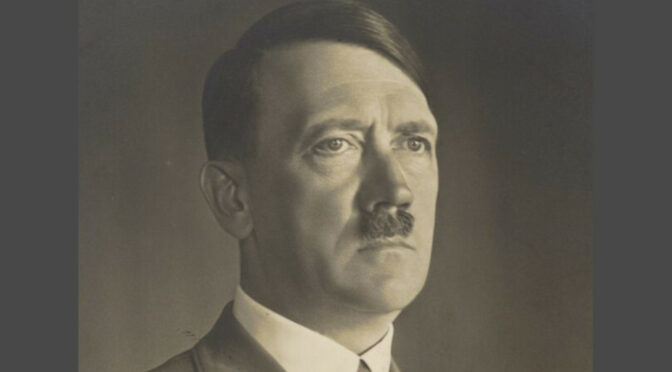Article published in The Daily Telegraph, 3 October 2022. © Richard Kemp
Putin constantly invokes parallels with the Second World War to justify his war. European assault on Russia, denazification of Ukraine, the list goes on. In reality the closest parallel is his own resemblance to Hitler, an effective political strategist but an incompetent commander-in-chief, whose greatest blunder was perhaps to hold the Wehrmacht back from Dunkirk in 1940, allowing the British army to escape. History is likely to judge Putin’s most ruinous decision as invading Ukraine with grossly inadequate numbers.
As Russian fortunes go from bad to worse, Putin, like Hitler, is increasingly micromanaging events on the battlefield, sometimes directing operations down to battalion level. For example, as Ukraine attacks strategically important cities in the east and south, Putin insists his over-stretched troops continue a slow, grinding assault against the eastern town of Bakhmut, squandering forces that could reinforce Russian defences elsewhere, in the vain hope of being able to assuage his critics in Moscow by announcing some kind of offensive success.
Meanwhile the sweeping Ukrainian counter-offensive around Kharkov was deeply humiliating for Putin, not only losing territory close to Russia’s border but also boosting Ukrainian national morale and re-invigorating support from the West, which finally saw real results from its immense financial and military investment in Ukrainian fighting capability.
Of course Putin’s strategic incompetence could not be blamed for this disaster so, as in previous setbacks, he fired generals and replaced them with even greater sycophants, once also the habit of the Nazi leader. The fall of Lyman in Donetsk a few days ago, just hours after Putin declared the province to be Russia’s ‘forever’ was a major strategic and political blow. Although the defenders knew they couldn’t hold, Putin refused to allow them to withdraw and so hundreds were reportedly captured and their equipment seized or destroyed, further diminishing Russian combat power.
In the south, Ukrainian progress around Kherson, one of the other provinces illegally annexed last week, has alarmed the Kremlin. Kherson city was the first major urban centre conquered by Russia in this invasion and has huge strategic and economic significance. It is crucial to Putin’s long-harboured ambition to seize Odessa and the other Ukrainian ports on the south coast and, more importantly, to the defence of Crimea and the land corridor between there and Russia.
That is why Putin’s strongest forces are deployed in the south, including reinforcements withdrawn from the east which allowed Ukraine to succeed around Kharkov. This makes Kherson a tougher nut to crack and a major battle there will result in large-scale casualties and drain Ukraine’s military resources. Despite recent battlefield successes the wider picture is also far from rosy. Zelensky does not have unlimited reserves and is running short of ammunition stocks. The additional long-range missile systems pledged by President Biden last week could take two years to reach the front line.
However, if and when Ukraine is able to continue its thrusts in the south and east, and Russia cannot contain them, Putin will be driven deeper into his bunker mentality and his habits of tactical micro-management will lead to even more mistakes on the battlefield. But his challenges do not come from the battlefield alone — his mobilisation has been mishandled and has forced him to end the charade of a ‘special military operation’, multiplying the disquiet in Russia caused by humiliating failures in the campaign. Public and private warnings from outside, such as Ben Wallace’s pronouncement yesterday that even Putin’s close allies are secretly abetting Ukraine’s war effort, are calculated to pile on the pressure and send a cautionary message to the Moscow elites.
While he remains in the Kremlin, Putin has no option other than to continue his fight – he cannot lose. Equally, Zelensky has no option other than to defend his country and take back what has been stolen from it. At the end Hitler had nothing left to lash out with, but we are not now at the end and Putin still does, such as carpet bombing of Ukrainian towns and chemical or nuclear strikes. The way to meet that threat is not to search for an off-ramp for a man who cannot turn the steering wheel but to threaten and be ready to deliver devastating consequences for Russia.

